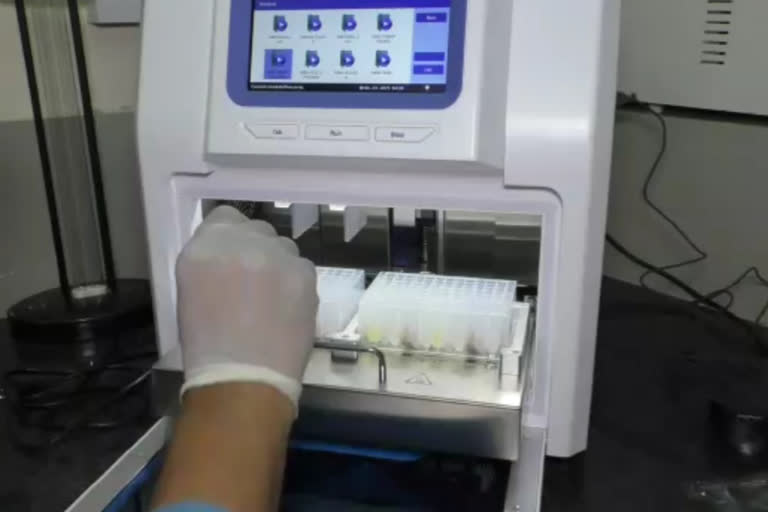New Delhi: Ahead of a possible third wave of the Covid-19 pandemic, the Indian SARS-CoV-2 Genomic Consortia (INSACOG) has intensified monitoring and testing of genomic variations of the Covid-19 infections across India.
A senior official at the National Centre for Disease Control and Control (NCDC) told ETV Bharat on Wednesday that the INSACOG management has decided to operate on a Hub and Spoke model.
It may be mentioned here that the Union Health Ministry has recently increased the number of INSACOG laboratories from 10 to 28.
"The new laboratories will work in tandem with existing laboratories so that necessary training and guidance can be provided to ensure that the standardised protocols and SOPs are followed by the newly identified sequencing laboratories," the official said.
These new laboratories can carry out 20,000 sequences per month. Taken together with the existing network laboratories, these 28 laboratories can carry out genome sequencing of 45,000 samples a month.
The INSACOG was set up jointly by the Ministry of Health and the Department of Bio-Technology to monitor the genomic variations in the SARS-CoV-2 for genomic, epidemiological and clinical correlation to assist public health response to the pandemic. NCDC is the nodal authority for INSACOG.
Also read:Centre writes to States to keep Covid positivity below 10 percent
Official statistics said that as many as 21109 variants of concern (VoC) have been detected by INSACOG to date, out of which 4544 are Alpha variants, 266 are Beta variants, two are Gamma variants and 16297 are Delta and Kappa variants.
Notably, Maharastra, Kerala, Delhi, West Bengal and Andhra Pradesh are the top five states and UTs with the maximum number of VOC.
Talking to this correspondent, senior public health expert and president of Indian Association of Preventive and Social Medicine (IAPSM) Dr Suneela Garg said that the existing genome sequencing laboratories in India are capable enough to detect any new variants of SARS-CoV-2 virus, "although the process needs to be strictly monitored."
"Our laboratories get an overall understanding of the disease epidemiology, clinical severity which helps in detecting the variants," said Dr Garg.
According to health experts the Delta variant, which was initially found in India, has so far been found in 85 countries. It was also responsible for a surge in infection in several countries.
Meanwhile, as Delta variants create havoc across the globe, the US National Institute of Health (NIH) has said that Covaxin is highly effective in neutralizing both Alpha and Delta variants of Coronavirus.
Also read:Cabinet approves loan guarantee scheme for COVID-affected sectors, enhances corpus of ECLGS
The NIH said, "Results of two studies of blood serum from people who had received Covaxin suggest that the vaccine generates antibodies that effectively neutralise the B.1.1.7 (Alpha) and B.1.617 (Delta) variants of SARS-CoV-2..."
In fact, the Indian Council of Medical Research (ICMR) has earlier claimed that Bharat Biotech made Covaxin works against the existing variants of Covid-19.
Talking about the development, Dr Garg said, "We have earlier said that both the Indian vaccines Covaxin and Covishield are working against the present variants of Covid-19."
She, however, said that the government's decision to give emergency use authorisation to Moderna is also a welcome step.
"As it is made in mRNA platform, Moderna has a higher efficacy in fighting the different variants of Covid-19," added Dr Garg.
